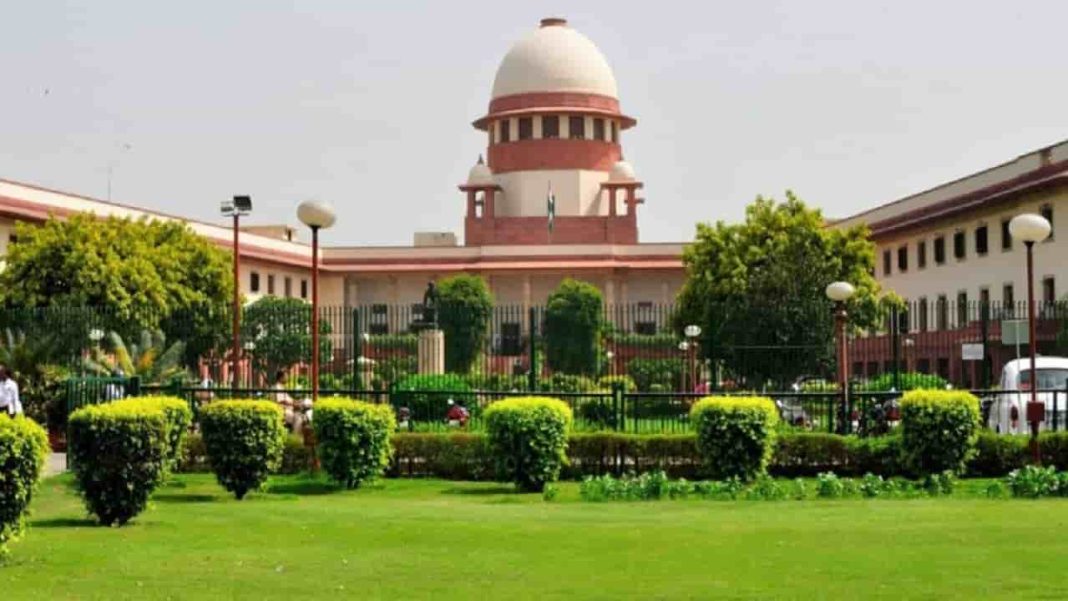The Supreme Court on Thursday delivered a split verdict on wearing of Hijab (headscarf) in educational institutes, with one Judge upholding the Karnataka High Court verdict on the matter, while the other one setting it aside, in view of education of girl child.
The Bench of Justice Hemant Gupta and Justice Sudhanshu Dhulia pronounced the operative portion of the judgement, saying that in light of divergence in opinion, the matter has to be placed before the Chief Justice of India for appropriate directions.
Before the pronouncement of verdict, Justice Hemant Gupta, while dismissing the 26 appeals that were filed against the Karnataka High Court judgement, noted that there was divergent opinion.
He said, “In my order, I have framed 11 questions. These include:
“Whether an appeal should be referred to the Constitution Bench?
“Whether college management can take a call on uniform of students and if wearing of hijab and restricting it is violative of Article 25?
“Whether the Right under Articles 19 and 25 of the Constitution are mutually exclusive?
“Whether the government order infringes upon the fundamental right?
“Can a student exert her fundamental right, is wearing right a part of essential religious practice under Islam?
“On the question whether the government order serves the purpose of access of education, the answer according to me is against the appellant. I dismiss the appeal,” added Justice Gupta.
Justice Dhulia said, “I have quashed the Government Order of February 5 and have ordered the removal of restrictions. I have also set aside the Karnataka High Court order.
“The main thrust of my judgement is that the entire concept of essential religious practice (ERP) was not essential to the dispute. The court took a wrong path. It was just a question of choice. I have held that the ratio in Bijoy Emmanuel squarely covers the case.
“One thing which was topmost for me was the education of girl child. A girl child finishes the household work and chores before going to school. Are we making her life any better by doing this? I respectfully differ. It is ultimately a matter of choice and Article 14 and 19 of the Constitution, nothing more and nothing less,” he added.
The Bench then decided to place the matter before the CJI for appropriate directions, in view of divergence in opinion.
On September 22, the Apex Court had reserved its verdict on the batch of appeals challenging the verdict, which upheld the government order by the State of Karnataka, empowering government colleges in the State to ban the Muslim students on wearing hijab in colleges premises.
The Bench of Justice Hemant Gupta and Justice Sudhanshu Dhulia had reserved the verdict, after conducting hearing on the same for 10 days.
A bunch of petitioners, who were Muslim girl students from various colleges in Karnataka, had approached the High Court after they were denied permission to attend classes on account of wearing hijab.
The appellants before the Supreme Court said that this was failure of the state accommodation to a student to exercise her right under Articles 19 and 21 of the Constitution.
The appellants also added that if an attire disrupted public order, it could be restricted and it was the responsibility of the State to ensure that an atmosphere was created, where one could exercise their fundamental rights.
When the question arose regarding the issue of Essential Religious Practice Test (ERP) as to whether hijab was essential to Islam, the appellants said that the only issue was whether the restriction was a valid Constitutional restriction.
Some appellants said that everything in the Quran was mandatory and nothing was directory, so hijab was essential to Islam.
They added that the order discriminated on the grounds of both religion and sex.
The state government, on the other hand, maintained that the order was ‘religion-neutral’ and did not target any particular community.
The government’s submission was that an ERP was only one that could be traced back to the origin of a religion and was mandatory.
The appellants rebuttal said that the government order targeting the headscarf could not be seen as religion-neutral.
On March 15, a three-judge Bench of then Chief Justice of Karnataka High Court Ritu Raj Awasthi, and Justice Krishna S. Dixit and Justice J.M. Khazi had ruled that Hijab was not a part of essential religious practices of Islam.
The High Court had observed that the requirement of uniform was a reasonable restriction on the fundamental right to freedom of expression under Article 19(1)(a)
The government has the power to pass the Government Order (GO), no case is made out for its invalidation, the three-Judge Bench had ruled.
Case title: Aishat Shifa vs State of Karnataka and Others


